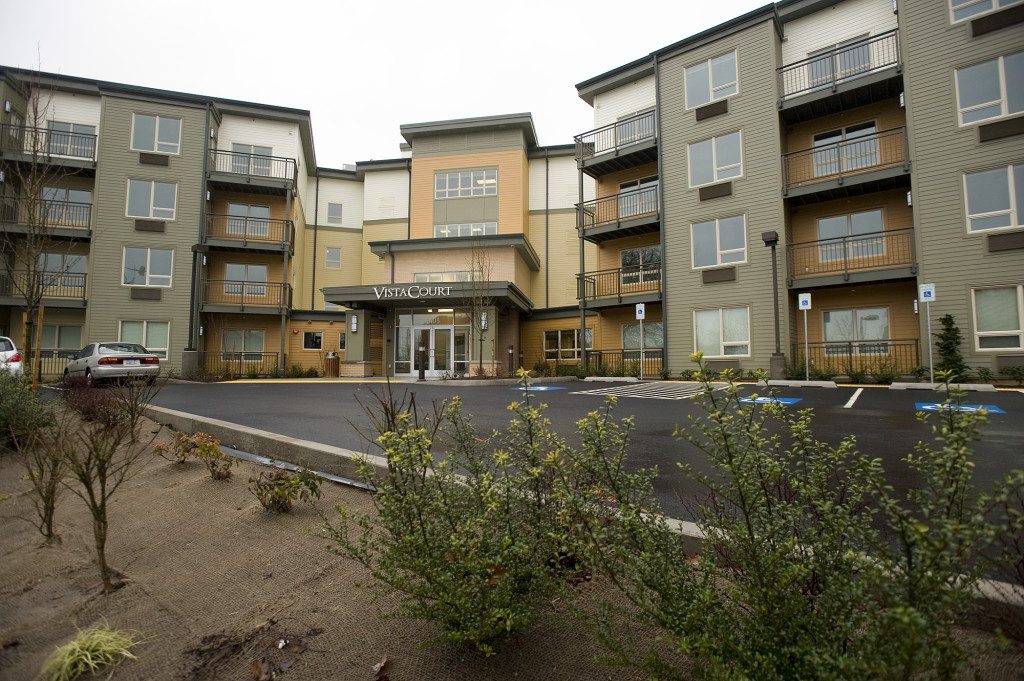For the last six months, about 2,800 local low-income households that rent market-rate apartments using federal subsidies have put more of their own income toward housing costs.
Vancouver Housing Authority said it had to stretch the budget for Housing Choice Vouchers, otherwise known as Section 8, either by raising the amount of rent tenants are responsible to pay or by helping fewer people. Tenants are now putting 35 percent of their adjusted income toward rent while the housing authority pays the rest. Previously, tenants contributed 33 percent of their adjusted income.
Due to rising rents, the subsidy that the housing authority has to pay to landlords has been outpacing federal funds from the U.S. Department of Housing and Urban Development, or HUD. For 2018, the housing authority budgeted about $22.6 million for housing assistance payments, its largest overall expense.
The housing authority’s board approved increasing tenant contributions at its July 27, 2017, meeting, and it became effective Jan. 1. In January, the housing authority saved $122,307 on its monthly housing assistance bill compared to December. Tenants averaged $23 more in monthly rent payments.
“We certainly saw an immediate impact on our housing assistance bill that month,” Executive Director Roy Johnson said.
Over the last six months, 38 households appealed their rent costs due to financial hardship — what’s known as a “hardship consideration.” Of those, 36 households said they were appealing based on the policy change. However, 11 were not eligible to appeal, and in 19 cases, it was determined there was no hardship. The remaining six households were approved.
“We thought we were going to get a lot more, and we prepared to get a lot more,” said David Overbay, Vancouver Housing Authority’s federal program policy manager.
The housing authority typically examines tenants’ incomes yearly, unless they have a fixed income. Their eligibility for housing assistance is re-examined and rent is recalculated.
This isn’t the first time Vancouver Housing Authority has bumped up tenant responsibility.
In September 2014, the board voted to increase tenant contributions from the federal standard of 30 percent of adjusted income to 33 percent; it was phased in over a year beginning in late 2015. They had first proposed going from 30 to 35 percent but that was met with pushback.
This time, tenants were officially notified of the change in October, and everybody’s rent went up at the same time.
Vancouver Housing Authority is one of 39 Move to Work authorities, which allows it to deviate from federal requirements. Housing authorities along the West Coast, where rents are rising, are implementing similar changes. The Housing Authority of the County of San Bernardino, Calif., for instance, also recently began using the 35 percent formula, Overbay said.
It’s a way to stretch the budget. The ideal scenario is that the change will create a surplus, allowing the agency to give out new housing assistance vouchers, Johnson said. Currently, the waiting list for vouchers is open only to certain referrals.
Johnson said credit should be given to tenants who took on the extra responsibility so nobody had to be booted from the program.
Historically, the Brooke Amendment in the Housing and Urban Development Act of 1969 set the income-based cap at 25 percent, and then it was increased to 30 percent of adjusted income in 1981.
In April, HUD Secretary Ben Carson proposed raising the federal standard to 35 percent of gross income and doing away with deductions, such as medical and child care costs. He has said the current housing assistance system is unsustainable, and not everyone who’s eligible for assistance receives it.
Johnson said that if all housing authorities went to 35 percent, the budget would shrink more and Vancouver Housing Authority would need to take some additional action. Also, he said, the housing authority typically gets less money than it’s expecting; last year, it received 97 percent of its anticipated federal allocation.
The Trump administration has indicated that it wants to tighten requirements and reduce overall dependency on federal assistance, such as housing and food stamps.





